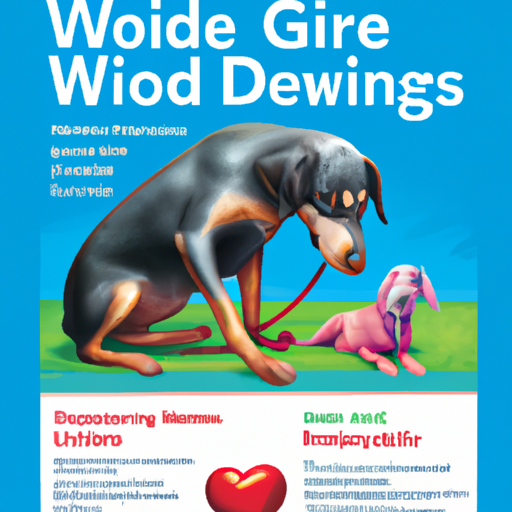Introduction
Like a dutiful caregiver, you’re always looking out for your furry friend. You feed them, groom them, play with them, and above all, you strive to keep them healthy. In your quest for canine wellness, there’s a silent but deadly enemy you must guard against: heartworms.
Understanding Heartworms
Heartworms are parasitic roundworms that can cause severe and potentially fatal disease in dogs. They are spread by mosquitoes and can live in the heart and blood vessels of the lungs of your dog. The heartworm lifecycle is a cruel, twisted tale of invasion and destruction.
- Phase one: A mosquito carrying heartworm larvae bites your dog.
- Phase two: The larvae enter the dog’s body and migrate to the heart, lungs, and associated blood vessels.
- Phase three: The larvae mature into adult worms, causing inflammation and damage.
| Stages | Description |
|---|---|
| Phase 1 | Mosquito bite introduces larvae |
| Phase 2 | Larvae migrate to heart and lungs |
| Phase 3 | Larvae mature causing damage |
Preventing Heartworms in Dogs
Now that you’ve glimpsed into the horrifying world of heartworms, let’s talk about how you can shield your canine companion from this menace.
-
Regular Vet Check-ups: Regular vet check-ups are akin to your dog’s annual physical. They help ensure that if your dog does contract heartworms, they are caught early before causing significant damage.
-
Heartworm Preventatives: Your vet can prescribe monthly tablets, topicals, or injections that can kill heartworm larvae before they mature into adults.
-
Mosquito Control: Since mosquitoes are the villains in this story, reducing your dog’s exposure to them can help prevent heartworm disease.
Managing Heartworm Disease
If your dog does contract heartworms, fear not. With you by their side, they can navigate this storm. The treatment generally involves several steps:
- Stabilizing Your Dog: This includes addressing any severe symptoms and starting on heartworm preventatives.
- Killing Adult Heartworms: Once your dog is stable, your vet will begin treatment to kill the adult heartworms.
- Post-Treatment Care: After treatment, your dog will need to rest and have follow-up appointments to ensure a full recovery.
FAQ
Q: Can humans get heartworms from dogs?
A: No. Heartworms are species-specific and do not typically infect humans.
Q: How often should my dog be tested for heartworms?
A: Vets generally recommend annual testing.
Q: Is heartworm disease painful for dogs?
A: Yes, it can cause discomfort and serious health issues if not treated.
Q: Can indoor dogs get heartworms?
A: Yes. Mosquitoes can get indoors, so indoor dogs are also at risk.
In conclusion, preventing heartworms in dogs is not just about periodic medication; it’s about vigilance, regular check-ups, and a lot of love. Your canine companion depends on you for their well-being. With your care and information like this, you’ll be well-equipped to keep them heartworm-free.



